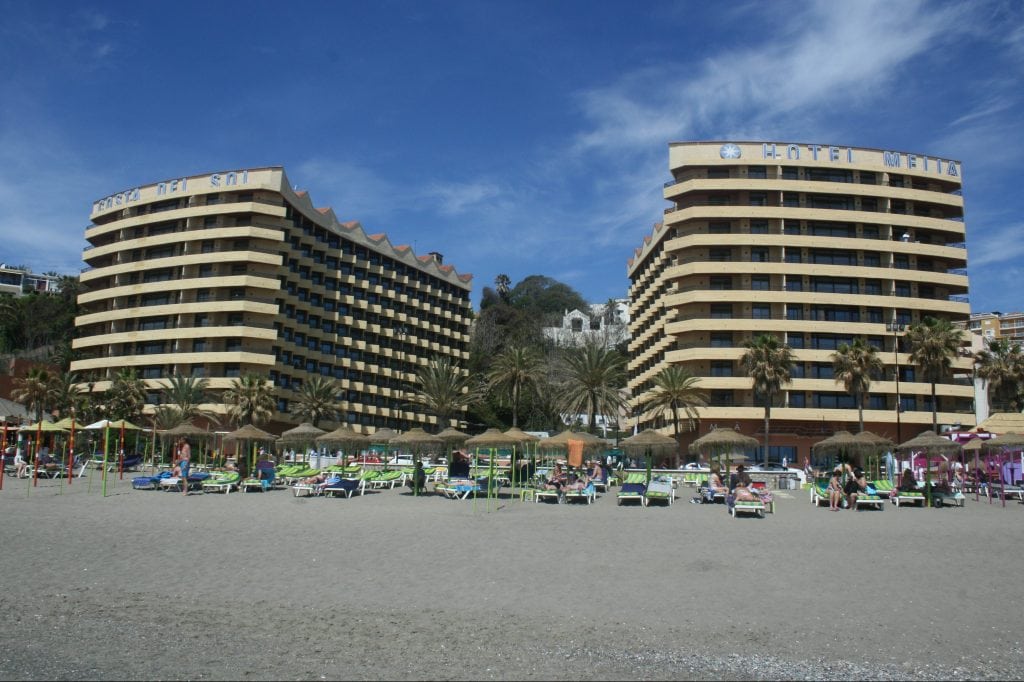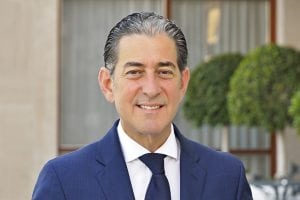Skift Take
In the tier below the big six hotel companies are a raft of others, jostling for position. Melia Hotels is one of the biggest players in Europe and it will be interesting to hear how it differentiates itself from the competition.
 Hundreds of the travel industry’s most-forward-thinking executives will gather for our third annual Skift Forum Europe in London on April 30. In just a few years, Skift's Forums — the largest creative business gatherings in the global travel industry — have become what media, speakers, and attendees have called the “TED Talks of travel.”
Hundreds of the travel industry’s most-forward-thinking executives will gather for our third annual Skift Forum Europe in London on April 30. In just a few years, Skift's Forums — the largest creative business gatherings in the global travel industry — have become what media, speakers, and attendees have called the “TED Talks of travel.”
Focusing on responsible travel practices and other key issues, Skift Forum Europe 2019 will take place at Tobacco Dock in London. The Forum will feature speakers, including CEOs and top executives from British Airways, IHG, Thomas Cook, Booking.com, TripAdvisor, Silversea, Uber, and many more.
The following is part of a series of posts highlighting some of the speakers and touching on issues of concern in Europe and beyond.
Melia Hotels International is something of a rarity in the hospitality world, in that it is still majority owned by the founding family.
In 1956, Gabriel Escarrer Juliá started the company with one hotel on the Spanish island of Majorca and he remains involved as Chairman. His son, Gabriel Escarrer Jaume, is the current chief executive.
The Escarrer family has gradually turned Melia from a leisure specialist — think resorts in sunny destinations — to one with a substantial interest in corporate travel as well as meetings and events.
The destination focus has also shifted. Spain remains a key market for the company but over the years it has expanded into China, southeast Asia and the Middle East.
At the upcoming Skift Forum Europe in Berlin on April 26, Chief Operating Officer Andre Gerondeau will talk about how Melia’s past, present and future.
What follows is an edited version of a recent Skift interview with Gerondeau.
Skift: A lot of hotel companies especially those in the U.S. like the franchise model. You’re more an owner and operator of hotels. Could you explain why you think that is a good model for Melia?
Andre Gerondeau: We started as a company with owned assets and as we’ve evolved into an asset right-asset light model we’ve balanced [things]. We’re close to 50 percent management, with very few franchises, at around 10 percent (we have that relationship in two or three destinations, mainly Portugal). Then the rest is owned and leased property.
We’ve been a hotelier for 62 years. We’ve never been in the business of pure real estate or the beer business or any other business. We were born as hoteliers, we remain loyal hoteliers.
Skift: You started off as a leisure-focused company and that’s still a huge part of your business but you also talk a lot about corporate travel. Is that an area you want to grow?
Gerondeau: Of course. One of the things that’s very important is I think we need to be an all-round hotel company, that really understands all segments, all markets and we need to be present. Because part of having a footprint is the way we build our relationships.
First, MICE (meetings, incentives, conferences and exhibitions). MICE is something that we believe we are strong players in, especially in the incentive market in some of our resorts but also in the urban market.
We run a few of the convention centres in different parts of the world, in Majorca, Madrid and in some other destinations so we do have a segmentation of customers, corporate customers in groups and incentives that use our hotels and our services in the key major cities in Europe, Latin America and Asia.
Those customers also become our corporate customers, then become our leisure customers. So it’s very important for us to have a base of corporate customers and because we are present — almost 40 percent of our business is in urban destinations — so corporate is very, very relevant and we probably do 18 to 20 percent of our business is corporate customers.
Skift: How has the rise of the online travel agencies changed your business? Do you rely on them or are you more about direct traffic?
Gerondeau: I think what’s interesting about us is the way we’ve established partnerships with all partners. Just to give you an idea we have almost 2,000 rooms in Cape Verde. Cape Verde is a great opportunity but it has an airlift challenge.
For 60 years we’ve been very close with the traditional wholesalers, those that might take risk, that put the planes in, or the traditional operators, who might go with charters or a very limited schedule. So that has evolved and we continue to have a very strong relationship with the traditional tour operator if you like.
Also, most of the destinations we’re involved with and you know the volume of the business that has come out of the different carriers whether we call them low cost or not. The marketing in Europe, whether it’s Ryanair, EasyJet or Norwegian or others like JetBlue in the States, has been very important.
So we really follow and we push more and more and wherever there is airlift our direct channels are stronger.
We have very strong ties with the likes of Expedia and Booking.com. Booking.com is probably stronger in Europe, Expedia is probably stronger in the U.S. But we’re also preferred partners with Ctrip in China, so we have strong relationships with the partners and we work with them. Now the difference, I believe, is the fact that we believe we must also control and own our strategy, our positioning strategy, our pricing strategy can only be dictated from us.
Don’t miss Melia Chief Operating Officer Andre Gerondeau on stage at Skift Forum Europe.
Have a confidential tip for Skift? Get in touch
Tags: hotels, melia hotels international, sfe2018, skift forum europe
Photo credit: A Melia hotel is pictured in Torremolinos, Spain. The hotel company can trace its origins back to 1956; it's chief operating officer will speak at Skift Forum Europe. Ian Gratton / Flickr

